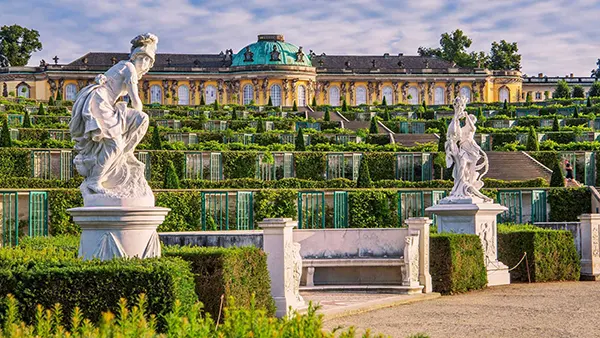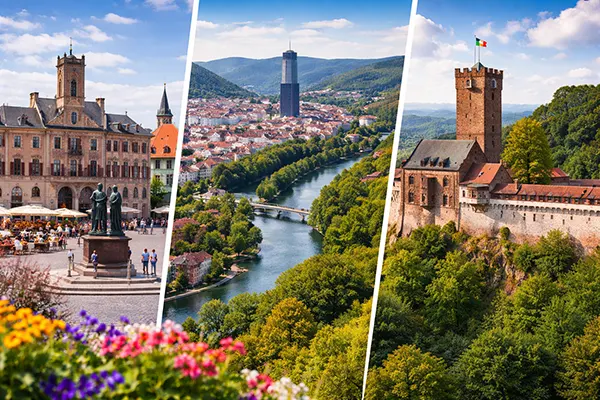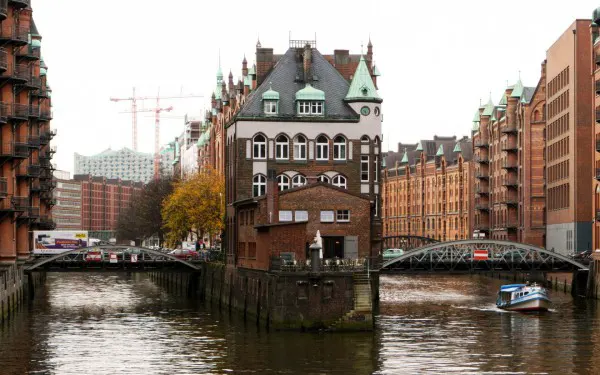
Meiningen: The Cultural Heart of Thuringia with Theatre and Music
Nestled in the southern part of Thuringia, Meiningen is a small German town with an extraordinary cultural legacy. Known as the “Little Weimar,” it has long been a centre of artistic innovation, particularly in the realms of theatre and orchestral music. In the 19th century, Meiningen gained international recognition for its pioneering approach to the performing arts, and today, it remains a vibrant destination for those seeking authentic culture and history beyond the usual tourist routes.
The Historical Portrait of the Duchy of Saxe-Meiningen
During the 19th century, Meiningen flourished under the rule of Duke Georg II, whose passion for theatre and music transformed the town into a cultural powerhouse. The Duke was deeply committed to the arts and gathered an impressive circle of artists, actors, and musicians. This period marked the emergence of Meiningen as a hub of European cultural life, where progressive ideas about stagecraft and music were born.
The Duchy of Saxe-Meiningen was relatively small, yet its cultural influence was vast. The court supported not only the development of theatre but also fine arts, architecture, and education. Intellectual exchange was encouraged, and the court’s patronage attracted talent from across Europe, including notable figures from Germany, Austria, and beyond.
By the late 1800s, Meiningen had established a reputation for artistic excellence, with its theatrical troupe touring major European cities. The town’s influence on acting and directing techniques was profound, laying the foundation for modern stage production as we know it today.
The Meiningen Theatre: Tradition and Innovation
The Meiningen Court Theatre, founded in 1831, is one of the oldest theatres in Germany still in operation. It became legendary thanks to the visionary leadership of Duke Georg II and director Ludwig Chronegk, who together revolutionised stage direction. Their emphasis on historical accuracy, ensemble acting, and detailed stage design became known as the “Meiningen style,” influencing generations of European directors.
Under the Duke’s direction, the theatre abandoned the concept of “star actors” dominating the stage. Instead, all performers were treated as equal parts of a cohesive ensemble. This shift created more authentic performances and elevated the entire art form. Notable artists such as Johannes Brahms and Richard Wagner were inspired by the theatre’s productions and collaborated with its orchestra.
Today, the Meiningen Theatre remains an active cultural landmark, hosting drama, opera, and ballet. Its architecture, carefully restored, reflects the elegance of the 19th century, and the venue continues to attract audiences from across Europe for its refined repertoire and artistic integrity.
Musical Traditions and the Meiningen Court Orchestra
Alongside its theatre, Meiningen is home to one of Europe’s oldest orchestras — the Meiningen Court Orchestra (Meininger Hofkapelle). Founded in 1690, it gained prominence under the direction of Hans von Bülow and Johannes Brahms in the late 19th century. The orchestra became renowned for its precision, discipline, and emotional depth, setting new standards in orchestral performance.
Johannes Brahms had a particularly close relationship with the Meiningen Orchestra, premiering several of his works there, including his Symphony No. 4. This collaboration marked a defining chapter in the history of classical music, placing Meiningen firmly on the European cultural map. The orchestra’s reputation spread quickly, and it was soon touring across Germany and neighbouring countries.
Today, the orchestra continues its legacy under the name Meininger Hofkapelle, performing both classical and contemporary works. Regular concerts are held at the Meiningen Theatre and open-air venues such as the English Garden, where visitors can enjoy the harmony of nature and music in one of the most picturesque settings in Thuringia.
Concerts and Festivals in Modern Meiningen
Meiningen’s musical life thrives throughout the year, with festivals celebrating everything from classical symphonies to modern interpretations. The annual “Meiningen Music Summer” is a highlight, featuring orchestral performances, chamber concerts, and outdoor events that attract both locals and international visitors.
These festivals uphold the town’s reputation as a bastion of artistic quality. Performers from all over Europe participate, creating a bridge between the historical traditions of the court orchestra and contemporary creative expression. Music remains an inseparable part of Meiningen’s identity, deeply rooted in its past yet continuously evolving.
Beyond the grand performances, smaller events — such as intimate recitals and workshops — foster community engagement and encourage young musicians to explore their talents. This combination of history and innovation ensures Meiningen’s musical scene remains both relevant and inspiring.

Architecture and Cultural Tourism in Meiningen
Meiningen’s cultural richness is complemented by its remarkable architecture. The English Garden (Englischer Garten) stands out as one of Germany’s oldest landscaped parks, designed in the 18th century in the style of English naturalism. It offers serene walking paths, lakes, and sculptures, serving as a peaceful retreat for visitors and locals alike.
The Old Palace (Altes Schloss), originally a ducal residence, is another gem. It showcases architectural styles ranging from the Renaissance to Baroque periods and houses exhibitions that tell the story of Meiningen’s noble heritage. The town’s historic centre, with its narrow streets and colourful facades, evokes the charm of bygone centuries while maintaining a lively, welcoming atmosphere.
Modern travellers to Meiningen can explore guided cultural routes that highlight the town’s artistic landmarks. From the theatre and museum district to historical cafés once frequented by artists, every corner of Meiningen reflects its deep connection to European art and intellect.
Tourism Beyond the Ordinary
Unlike the crowded tourist spots of Germany, Meiningen offers an authentic and tranquil experience. It’s ideal for visitors seeking culture, history, and creativity without the rush of large cities. Here, one can attend a play, enjoy a concert, and later stroll through the same gardens that inspired generations of artists.
Local gastronomy adds another layer to the town’s appeal. Traditional Thuringian dishes and regional wines can be enjoyed in historic taverns or elegant restaurants, often accompanied by live music performances. The town’s welcoming community and well-preserved heritage make it a rewarding destination for discerning travellers.
In 2025, Meiningen continues to thrive as a centre for arts and culture, preserving its proud traditions while embracing modern creativity. Its dedication to music, theatre, and architecture ensures it remains one of Thuringia’s most captivating cultural treasures.



